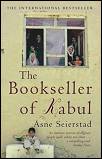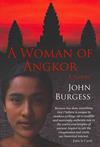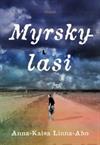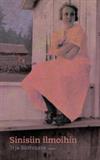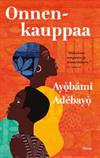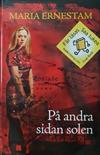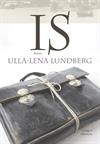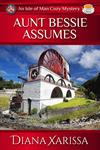
The Bookseller of Kabul
Registered by BC-08041015142 on 8/27/2004
3 journalers for this copy...
I must admit I have finished this book and have an overwhelming feeling of disappointment. It did not live up to my expectations at all.
Having read a number of books on the Taliban's effect on women in Afghanistan, I had thought this book was a journal on a Western woman's view of life in Kabul post the Taliban regime and in the light of "9/11" and the war with the US.
Instead this book is a collection of memoirs from the Khan family about their life in Kabul before, during and after the Taliban regime. This in itself is not a bad thing, however it was not what I was expecting. You learn nothing of how Seierstad interacted with the family or was treated in her daily life in Kabul - other than a quick introduction to say she was able to move between the men and women's groups with ease.
The main character in the book is Sultan Khan, the father of the Khan family. He rules his family with an iron rod, expecting nothing but the highest standards from his wives and children. He comes over intially as a well-educated, middle-class Afghan, running a bookshop and trying to ensure the best for his family. However as the tales progress he becomes more and more unlikeable. He throws out his nephew for no reason after looking after him for a number of years, sending him back to his poverty-striken family. He also proceds with legal action against a carpenter accused of stealing postcards from the bookshop - although this would have meant starvation for the carpenter's family. He shows little or no mercy or compassion for those around him. He expects his sons to do his bidding, irrespective of their beliefs or wishes. For all his education he prevents his youngest son returning to school after the fall of the Taliban, prefering, instead, the child work in one of Sultan's many business. His total focus seems to be on money and monetary gain, to the exclusion of everything else. Indeed, the book ends with an epilogue explaining that not long after Seierstad left Kabul, Sultan fell out with his mother and sisters and threw them out of the house. You get the feeling that Sultan Khan, for all his entreprenurial spirit and education could end up a very lonely, embittered, old man.
The most interesting characters in the book are undoubtedly the women. Sultan's youngest sister, Leila, is treated no better than a slave, and when he decides to take a second wife, against the wishes of his family, there is nothing that anyone can do to stop him. The women have become so used to the strict life under the Taliban regime - never showing their faces in pubic, never being alone with a man, never letting a stranger see their faces even in their own homes, not receiving any education - that even when the opportunity arises after the Taliban have fallen, they cannot bring themselves to take them. The women, without fail, still see themselves as second-class citizens, and wouldn't dream of leaving the house without their burkha. It is interesting that even when the oppression is removed, the women are never truly free.
The book, however, for the most part is poorly written and narrated. All the stories are third-hand, and come across as almost being separate from each other, reading more like a collection of short stories rather than a single book. Seierstad is not an accomplished writer and her style is rather clumpy, making the book an even more awkward read.
I am disappointed with this book, as I was thoroughly looking forward to reading it. But thank you to my secret pal for giving it to me, and I'll try to get it moving again very soon.
:-)
Having read a number of books on the Taliban's effect on women in Afghanistan, I had thought this book was a journal on a Western woman's view of life in Kabul post the Taliban regime and in the light of "9/11" and the war with the US.
Instead this book is a collection of memoirs from the Khan family about their life in Kabul before, during and after the Taliban regime. This in itself is not a bad thing, however it was not what I was expecting. You learn nothing of how Seierstad interacted with the family or was treated in her daily life in Kabul - other than a quick introduction to say she was able to move between the men and women's groups with ease.
The main character in the book is Sultan Khan, the father of the Khan family. He rules his family with an iron rod, expecting nothing but the highest standards from his wives and children. He comes over intially as a well-educated, middle-class Afghan, running a bookshop and trying to ensure the best for his family. However as the tales progress he becomes more and more unlikeable. He throws out his nephew for no reason after looking after him for a number of years, sending him back to his poverty-striken family. He also proceds with legal action against a carpenter accused of stealing postcards from the bookshop - although this would have meant starvation for the carpenter's family. He shows little or no mercy or compassion for those around him. He expects his sons to do his bidding, irrespective of their beliefs or wishes. For all his education he prevents his youngest son returning to school after the fall of the Taliban, prefering, instead, the child work in one of Sultan's many business. His total focus seems to be on money and monetary gain, to the exclusion of everything else. Indeed, the book ends with an epilogue explaining that not long after Seierstad left Kabul, Sultan fell out with his mother and sisters and threw them out of the house. You get the feeling that Sultan Khan, for all his entreprenurial spirit and education could end up a very lonely, embittered, old man.
The most interesting characters in the book are undoubtedly the women. Sultan's youngest sister, Leila, is treated no better than a slave, and when he decides to take a second wife, against the wishes of his family, there is nothing that anyone can do to stop him. The women have become so used to the strict life under the Taliban regime - never showing their faces in pubic, never being alone with a man, never letting a stranger see their faces even in their own homes, not receiving any education - that even when the opportunity arises after the Taliban have fallen, they cannot bring themselves to take them. The women, without fail, still see themselves as second-class citizens, and wouldn't dream of leaving the house without their burkha. It is interesting that even when the oppression is removed, the women are never truly free.
The book, however, for the most part is poorly written and narrated. All the stories are third-hand, and come across as almost being separate from each other, reading more like a collection of short stories rather than a single book. Seierstad is not an accomplished writer and her style is rather clumpy, making the book an even more awkward read.
I am disappointed with this book, as I was thoroughly looking forward to reading it. But thank you to my secret pal for giving it to me, and I'll try to get it moving again very soon.
:-)
After a bit of looking around on the internet, there is more to this story than meets the eye. The real "Sultan Khan" is in fact a bookseller by the name of Shah Muhammad Rais. I have come across two interesting articles which I felt I would add to this journal entry as a possible starting point for future debate.
The first is taken from the British newspaper "The Guardian" and was published in November 2003.
Nightmare sequel to bestseller on Kabul family life
Helena Smith in Athens
Monday November 3, 2003
The Guardian
Asne Seierstad, the Norwegian journalist who has become Scandinavia's bestselling author, never thought she would call herself "stupid or naive".
But a year after publishing The Bookseller of Kabul, her unexpectedly successful account of an extended Afghan family, the 33-year-old has begun to question the value of her own unsparing honesty.
"Maybe I fooled myself into thinking that he wouldn't react," she says of the tome's title character, Shah Mohammed Rais (called Sultan Khan in the book), who has vowed to sue her for impugning his reputation.
"As a bookseller he was an educated man who always tried to be so liberal but maybe I was stupid and naive not to be more aware that he wouldn't like it," she told the Guardian, after flying into Athens for the release of the book's Greek edition.
In a nightmare scenario for any writer, her one-time ally has not only hired a high-flying lawyer, but flown out to Oslo to rally support. After welcoming Seierstad into his home after the fall of the Taliban, Rais says he is outraged by his portrayal as a tyrannical traditionalist bent on imprisoning women, including his teenage second wife.
"There are, I agree, some details that are too intimate," said the Norwegian, who lived with the family for three months before writing her searing rendition of the bullying and frustration within it.
With more than 220,000 copies sold in Norway alone, The bookseller of Kabul - released in Britain in August and America this week - is the country's biggest non-fiction bestseller in history. Seierstad, also Oslo's pre-eminent war correspondent, said: "I never expected it to speak to people so much." She has given half the proceeds to charities promoting women's rights in Afghanistan, and says she was appalled by the merciless "mental torture" to which Afghan women are subjected daily.
Although the author has removed offending passages from reprints, Rais, who sells books in Kabul's Intercontinental Hotel, is far from placated. In the past month he has brought 40 complaints against the work, which he claims insults Afghan culture and Islam.
With the Norwegian media covering the furore almost daily, the row has raised inevitable questions about the ethics of a western observer describing developing world reality.
"I agree that maybe I should have been more careful," Seierstad said. "But I couldn't disguise any more than I did. I couldn't have made him a butcher, for example, because a lot of the story revolves around him selling books."
When she met Rais, Seierstad was captivated by his courage: "I was fascinated because he had been imprisoned repeatedly and had many of his books looted and burned. Afghanistan needs more people like him."
Is she worried? With polls showing the overwhelming majority of her compatriots taking her side, she says not.
"What has been really good is all the support I have got from Afghan women abroad. A lot of them have said what you have written is true. You just didn't go far enough!"
The second is an open letter written by Shah Muhammad Rais and published on kabulguide.net.
A MATTER OF HONOR AND TRUTH By Shah Muhammad Rais
The legal actions that I have undertaken and will undertake in Norway as well as in other countries and international forums against Asne Seierstad for the defamations of myself, my family and my country contained in her book "The Bookseller of Kabul" involve questions of honour and truth that extend far beyond the lies and distortions committed in this particular case. What is at stake are basic issues of decency and trust on a world scale at a time when mankind is engaged in a great struggle against extremism, and the debt that must be paid to those who bear the brunt of this struggle.
Far from providing any profound insight into Afghan society, the tragedy of Afghanistan's modern history and its crucial role in world affairs, this is a low and salacious book, one that focuses almost exclusively on dirty aspects of life to the neglect of the challenges at hand. It is not the product of any deep study, experience or thought about the country. The author has taken advantage of a crisis in world history to pander to sensationalism, depicting things in as negative a light as possible in order to sell books and abusing the goodwill of the Scandinavian people in the process.
It is not the first time that Ms Asne Seierstad has taken advantage of the generosity of others. When she first came to Kabul in the wake of the September 11th terrorist attacks and the fall of the Taliban she was wholly ignorant of Afghanistan and its particular traditions and historical experience, and entirely without contacts or guides. I extended to her the hospitality of my home, the benefits of my lifetime's worth of knowledge about my country, and my precious time at a moment when all responsible individuals were preoccupied by the great drama unfolding around us.
She has repaid this kindness by concocting a worthless collection of invented incidents, twisted truths and personal details which were told to her in confidence, whose decimation in many countries will harm many innocent people.
Among the most egregious of these are:
----- Depicting me as a fundamentalist, when I have been against fundamentalism all of my life and have suffered personally from it.
----- Attributing perverse sexual practices to members of my family and friends which are completely untrue, up to and including the invention of incidents.
-----Claiming that I denied educational opportunities to my children, male and female, when the truth is that their formal education was disrupted by war and oppression. In fact their knowledge, particularly of languages, is considerable, and I have always been a champion of women's rights, starting with that to an education.
----- Mischaracterizing the traditional Afghan practices of arranging marriage expenses, including provisions for the wedding feast and setting up the new household, as the buying and selling of human beings.
----- Mischaracterizing the role of people in general, depicting such things as household chores undertaken by relatives who have been given shelter because of the disruptions of war as servitude.
----- Broadcasting nonessential personal details such as where I keep my cash, a vital secret for all Afghans in a land devoid of either a banking system or personal security.
----- Not hiding the identities of people in the book, all of which are easily recognizable in terms of personal attributes, locations, etc., which she had promised to do.
All of these personal attacks are secondary to the crime she has committed against the culture and people of Afghanistan. She has depicted as ingrained national traits incidences of violence and extremism, which are the by-product of prolonged and devastating war, and by no means represent the majority of Afghans or their essential spirit. There can be no greater disservice to a nation, which has contributed so much to and sacrificed so much in the world's common struggle against communism and terrorism.
The degree to which her book represents the aberration of a disreputable person can be seen in its contrast to the great classics on
Afghanistan and its Central Asian region written by truly talented and virtuous foreigners. Works such as Peter Hopkirk's "The Great Game", Jason Eliot's "An Unexpected Light" Christina Lamb's "The Sewing Circles of Herat" and Ahmed Rashid's "Taliban" are the product of years or even decades of profound experience of and reflection on the subject, and depict a different land than the one that Ms. Seierstad does not even know. Ahmed Rashid's noble commitment of a large portion of the proceeds from his best-selling book to supporting the growth of a free press in Afghanistan also stands in stark contrast to her opportunistic greed.
Many journalists have asked me since the enormity of the slanders and defamations committed in her book became apparent whether I regretted inviting her into my home. I always answer "No", for my actions were in keeping with deep Afghan spiritual traditions of hospitality, which are summed up by the proverb, " If your enemy comes to your house, do your best to protect them and give them hospitality -- Especially if the guest is a woman ".
My life has been full of countless positive and meaningful encounters with journalists, scholars and other foreigners, and I will continue to extend the hospitality of my home and share my knowledge of Afghanistan with them, because I passionately believe in the honour of the intentions of most of them, and their commitment to the truth.
And that is also why for their sake, who write well without being paid much, for the sake of my family, which has been terribly injured, and for the sake of Afghanistan, which has been defamed, I must pursue legal actions on all fronts against Ms. Asne Seierstad. That the many people of all lands whom she has needlessly hurt will not suffer more than is necessary in this time of general sacrifice for a better world.
Sincerely
Shah M Rais
As always, there are two sides to every story ...
The first is taken from the British newspaper "The Guardian" and was published in November 2003.
Nightmare sequel to bestseller on Kabul family life
Helena Smith in Athens
Monday November 3, 2003
The Guardian
Asne Seierstad, the Norwegian journalist who has become Scandinavia's bestselling author, never thought she would call herself "stupid or naive".
But a year after publishing The Bookseller of Kabul, her unexpectedly successful account of an extended Afghan family, the 33-year-old has begun to question the value of her own unsparing honesty.
"Maybe I fooled myself into thinking that he wouldn't react," she says of the tome's title character, Shah Mohammed Rais (called Sultan Khan in the book), who has vowed to sue her for impugning his reputation.
"As a bookseller he was an educated man who always tried to be so liberal but maybe I was stupid and naive not to be more aware that he wouldn't like it," she told the Guardian, after flying into Athens for the release of the book's Greek edition.
In a nightmare scenario for any writer, her one-time ally has not only hired a high-flying lawyer, but flown out to Oslo to rally support. After welcoming Seierstad into his home after the fall of the Taliban, Rais says he is outraged by his portrayal as a tyrannical traditionalist bent on imprisoning women, including his teenage second wife.
"There are, I agree, some details that are too intimate," said the Norwegian, who lived with the family for three months before writing her searing rendition of the bullying and frustration within it.
With more than 220,000 copies sold in Norway alone, The bookseller of Kabul - released in Britain in August and America this week - is the country's biggest non-fiction bestseller in history. Seierstad, also Oslo's pre-eminent war correspondent, said: "I never expected it to speak to people so much." She has given half the proceeds to charities promoting women's rights in Afghanistan, and says she was appalled by the merciless "mental torture" to which Afghan women are subjected daily.
Although the author has removed offending passages from reprints, Rais, who sells books in Kabul's Intercontinental Hotel, is far from placated. In the past month he has brought 40 complaints against the work, which he claims insults Afghan culture and Islam.
With the Norwegian media covering the furore almost daily, the row has raised inevitable questions about the ethics of a western observer describing developing world reality.
"I agree that maybe I should have been more careful," Seierstad said. "But I couldn't disguise any more than I did. I couldn't have made him a butcher, for example, because a lot of the story revolves around him selling books."
When she met Rais, Seierstad was captivated by his courage: "I was fascinated because he had been imprisoned repeatedly and had many of his books looted and burned. Afghanistan needs more people like him."
Is she worried? With polls showing the overwhelming majority of her compatriots taking her side, she says not.
"What has been really good is all the support I have got from Afghan women abroad. A lot of them have said what you have written is true. You just didn't go far enough!"
The second is an open letter written by Shah Muhammad Rais and published on kabulguide.net.
A MATTER OF HONOR AND TRUTH By Shah Muhammad Rais
The legal actions that I have undertaken and will undertake in Norway as well as in other countries and international forums against Asne Seierstad for the defamations of myself, my family and my country contained in her book "The Bookseller of Kabul" involve questions of honour and truth that extend far beyond the lies and distortions committed in this particular case. What is at stake are basic issues of decency and trust on a world scale at a time when mankind is engaged in a great struggle against extremism, and the debt that must be paid to those who bear the brunt of this struggle.
Far from providing any profound insight into Afghan society, the tragedy of Afghanistan's modern history and its crucial role in world affairs, this is a low and salacious book, one that focuses almost exclusively on dirty aspects of life to the neglect of the challenges at hand. It is not the product of any deep study, experience or thought about the country. The author has taken advantage of a crisis in world history to pander to sensationalism, depicting things in as negative a light as possible in order to sell books and abusing the goodwill of the Scandinavian people in the process.
It is not the first time that Ms Asne Seierstad has taken advantage of the generosity of others. When she first came to Kabul in the wake of the September 11th terrorist attacks and the fall of the Taliban she was wholly ignorant of Afghanistan and its particular traditions and historical experience, and entirely without contacts or guides. I extended to her the hospitality of my home, the benefits of my lifetime's worth of knowledge about my country, and my precious time at a moment when all responsible individuals were preoccupied by the great drama unfolding around us.
She has repaid this kindness by concocting a worthless collection of invented incidents, twisted truths and personal details which were told to her in confidence, whose decimation in many countries will harm many innocent people.
Among the most egregious of these are:
----- Depicting me as a fundamentalist, when I have been against fundamentalism all of my life and have suffered personally from it.
----- Attributing perverse sexual practices to members of my family and friends which are completely untrue, up to and including the invention of incidents.
-----Claiming that I denied educational opportunities to my children, male and female, when the truth is that their formal education was disrupted by war and oppression. In fact their knowledge, particularly of languages, is considerable, and I have always been a champion of women's rights, starting with that to an education.
----- Mischaracterizing the traditional Afghan practices of arranging marriage expenses, including provisions for the wedding feast and setting up the new household, as the buying and selling of human beings.
----- Mischaracterizing the role of people in general, depicting such things as household chores undertaken by relatives who have been given shelter because of the disruptions of war as servitude.
----- Broadcasting nonessential personal details such as where I keep my cash, a vital secret for all Afghans in a land devoid of either a banking system or personal security.
----- Not hiding the identities of people in the book, all of which are easily recognizable in terms of personal attributes, locations, etc., which she had promised to do.
All of these personal attacks are secondary to the crime she has committed against the culture and people of Afghanistan. She has depicted as ingrained national traits incidences of violence and extremism, which are the by-product of prolonged and devastating war, and by no means represent the majority of Afghans or their essential spirit. There can be no greater disservice to a nation, which has contributed so much to and sacrificed so much in the world's common struggle against communism and terrorism.
The degree to which her book represents the aberration of a disreputable person can be seen in its contrast to the great classics on
Afghanistan and its Central Asian region written by truly talented and virtuous foreigners. Works such as Peter Hopkirk's "The Great Game", Jason Eliot's "An Unexpected Light" Christina Lamb's "The Sewing Circles of Herat" and Ahmed Rashid's "Taliban" are the product of years or even decades of profound experience of and reflection on the subject, and depict a different land than the one that Ms. Seierstad does not even know. Ahmed Rashid's noble commitment of a large portion of the proceeds from his best-selling book to supporting the growth of a free press in Afghanistan also stands in stark contrast to her opportunistic greed.
Many journalists have asked me since the enormity of the slanders and defamations committed in her book became apparent whether I regretted inviting her into my home. I always answer "No", for my actions were in keeping with deep Afghan spiritual traditions of hospitality, which are summed up by the proverb, " If your enemy comes to your house, do your best to protect them and give them hospitality -- Especially if the guest is a woman ".
My life has been full of countless positive and meaningful encounters with journalists, scholars and other foreigners, and I will continue to extend the hospitality of my home and share my knowledge of Afghanistan with them, because I passionately believe in the honour of the intentions of most of them, and their commitment to the truth.
And that is also why for their sake, who write well without being paid much, for the sake of my family, which has been terribly injured, and for the sake of Afghanistan, which has been defamed, I must pursue legal actions on all fronts against Ms. Asne Seierstad. That the many people of all lands whom she has needlessly hurt will not suffer more than is necessary in this time of general sacrifice for a better world.
Sincerely
Shah M Rais
As always, there are two sides to every story ...
Released 18 yrs ago (7/2/2005 UTC) at
WILD RELEASE NOTES:
RELEASE NOTES:
Going into an Unconvention goody bag
Going into an Unconvention goody bag
Found in my goody bag at the Unconvention! Another from my wish list! Many thanks to the organisers for the event.
A friend passed the book to me; I plan to leave the book on the train on Monday. The book gives you a real feeling of what life is like in Kabul; through the insight into one extended family's life it describes family life, social hierarchy and the political climate and how these things affect the individual.
